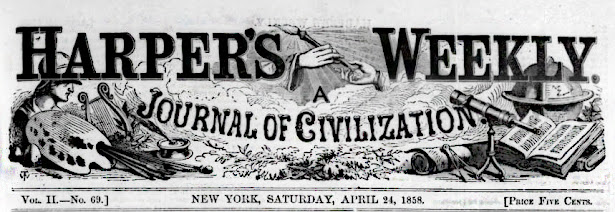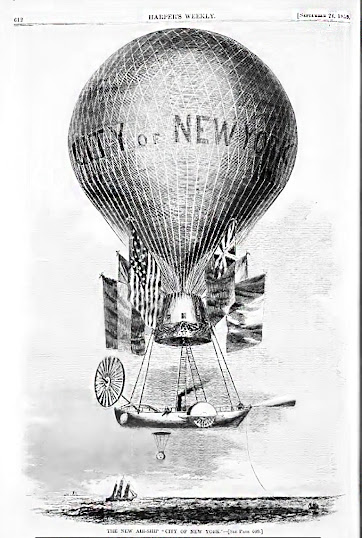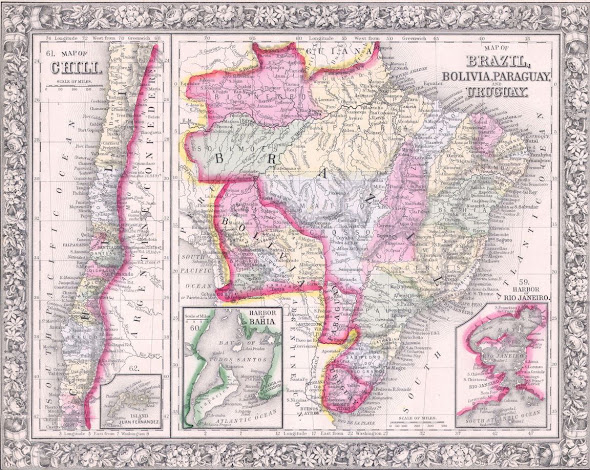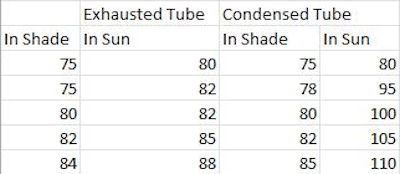Harper's Weekly Editorial Against Building a Transcontinental Railroad--April 1858
Harper's Weekly was one of the most influential publications of its day. The editorial below touches on so many issues of the day and many of which relate to today's opinions by contrast. The editorial original is in italics; my added commentary and background in blue and not in italics.
Harper’s Weekly, Saturday April 24, 1858
THE PACIFIC RAILROAD
Mr. Benjamin seems to have given this measure its
quietus. The Senate, may, of course, reconsider the vote by which it has
deferred further consideration of Sen. Green’s bill till December next, but it
is not likely. Small as the majority was in favor of Mr. Benjamin’s motion, it is
a majority which is likely to swell. (Sen. Judah P. Benjamin
D-LA, a leader in New Orleans’ Jewish community and later the only intelligent
member of the Confederate cabinet. Last
seen at the end of the Civil War in a row boat heading for a blockade runner
with the remnants of the Confederate treasury. A brilliant lawyer, he soon became
a wealthy Queen’s Counsel barrister in London and died there in 1888.)
One very striking fact is apparent on a glance at the
division which took place on the question. All the aspirants to the Presidency
voted against deferring the bill; both Republican and Democratic candidates for
the White House registered their votes in favor of proceeding with the railway
forthwith. The hostile majority contain not one name which is likely to suggest
itself, for the present, to any nomination convention; and, in fact, the
Presidential “platforms” of all political parties are now
identical on the question. All concur in pledging their standard bearers to the
construction of the Pacific Railroad. ( Nobody—not even Lincoln—knows he’s a candidate for president—he’s
busy losing his campaign for senator from Illinois to Stephen Douglas, his wife’s
one-time suitor.)
How then does it happen that the Senate so unceremoniously
throws overboard this “plank” which forms a part of all political “platforms?” (Notice quotation marks
around plank and platform. Platform and plank were new
terms then in political jargon.)
Of course, the deficiency in the Treasury occurs as the most
obvious reply. The United States Government is in the market as a borrower. It
pays more for its money than the brokers of Wall Street or the first class
merchants of South Street. It is not likely to grow rich in a hurry, for its revenues
are falling off prodigiously, in consequence of the retrenchment in
expenditures and the curtailment of importations.
Under the circumstances, this ought to be ground enough for the refusal of
Congress to embark in a new enterprise which is likely to cost a couple of
years’ income. (Before 1863, the US
Government recognized only gold, silver, and copper as “money” or “specie.” Nearly all the Federal government’s income
came from import tariffs or Federal bonds payable only in gold. An income tax was briefly introduced in the Civil
War, but more importantly, the government began printing paper money, “greenbacks”
in 1863.)
But it is to be feared there is yet another reason for
the postponement of the measure by the Senate. A Pacific Railroad is a
magnificent project to ventilate in the press and on the stump. It is certain to
command the enthusiastic approval of California, Oregon, and the States
bordering on the Mississippi. The very name of the thing evokes visions of fat
contracts, a prospect by no means unpleasing to politicians of any party. No
wonder, then, that the managers of all parties have made a rule of adopting the
scheme into their programme. (sic)
(It did indeed. The transcontinental railroad project’s contractors looted the
US Treasury shamelessly—but got the railroad built.)
But to build the road is a very different matter. The enterprise is without example in the history of public works. It could only be likened to the Great Wall of China or the Pyramids of Egypt, which were built with compulsory labor. The great military roads of Russia, which are exhausting the means of the Empire. It would require an army of workers to build and an army to protect them while at work, and an army of settlers to see that the Indians do not tear up the rails when they were laid. (It did take an army. The Central Pacific working from San Francisco toward Utah eventually employed 20,000 to 25,000 men and the Union Pacific’s crew coming from the East employed almost as many.) Every ton of iron laid on the sleepers, (wooden cross ties) and every ton of Maryland or Pennsylvania coal burned on the locomotives would be as costly in proportion as the flour now consumed by General Johnston’s force—which costs $100 a barrel. (General Albert Sydney Johnston was in charge of fighting the Mormon militia of 5,000 men with 5,000 US Army personnel while keeping another 2,000 busy in “Bleeding Kansas.” Johnston became head of the Confederate Army at the opening of the Civil War. Consider the value of a dollar in an era in which an army private earned $8/month.) Of the expense of building the road nothing need be said, though the old estimate of a hundred millions would fall short by at least one third of the sum which, judging from the cost of the railways in our States, would be required to put the enterprise in working order; but, if the road were resolved upon, fifty millions more or less would not matter. No return should ever be expected; even in the Atlantic States no railways pretend to pay dividends which have not a large way traffic.
There is however, another and a greater
difficulty than any of these. There is a strong and growing prejudice –based on
thorough experience—against governments embarking on works of construction or
improvement. We do not allude to the Constitutional question whether such works
fall legitimately within the scope of the functions of our governments. (Before the issue of slavery and until the
Civil War the chief difference in political parties was over whether the
Federal government should finance “internal improvements” such as the TVA or
Interstate Highways or NASA. Whigs favored internal improvements; Democrats
left it all to the states.) We refer to the general
opinion that whenever a government undertakes to build or dig, it does the work
badly, and is tremendously cheated into the bargain. This has been the
experience of the United States government in the construction of vessels of
war, and in works of internal improvement in a score of places. (Ronald Reagan’s policy was not original
after all.) It has been the experience of the State governments of
New York and Pennsylvania in their canals. It has been the experience of every
State government which has ever built or dug(canals).
Experience teaches that, in this country at all events, Governments are
not fitted to undertake works of internal improvement. There is no reason to
suppose that the Pacific Railroad would prove an exception to the rule.
Of course, we do not mean to be understood as considering
these objections finally fatal to the scheme. An Atlantic telegraph seemed a
monstrous absurdity a few years since. (see my other blog entries) And
a few years hence all difficulties in an inter oceanic road may be overcome.
But they are quite formidable enough at the present to
justify a prudent administration in evading the responsibility of undertaking
the enterprise, and bequeathing it as a legacy to their successors. (The Panic of 1857 forced a number of railroads into bankruptcy.
Unable to ship their harvests, farmers went broke as well. Imports dropped, and
thus also, Federal tariff income.)
This is not the place to inquire into the relative merits
of the various routes for a railway from the Pacific to the Mississippi. There
can be no doubt, should the road ever be undertaken, but the real termini of
the traffic would be San Francisco on the one side and New York on the other. (A route which every
Southern member of Congress opposed.) The best route is therefore it would appear to be that
one which the nature of the country will permit to be built as nearly as
possible to a straight line between New York and San Francisco. And whatever
opposition might be made by sectional interests to such a route, the common
sense of the country would doubtless insist on its being adopted, were Congress
prepared to undertake the work.
Note
both verbosity of the writing (983 words) and the manic overuse of commas.
Typesetters must have had massive supplies of commas as all newspapers at the
time over use them.
I am amused at the use of the Latin plural
form of “terminals” to show just how educated the editorial writer is. Just to
show you how educated I am—the correct plural of stadium is “stadia”, and the
correct plural of datum is “data.”
The
word “state” or “states” is always capitalized in papers north and south. Otherwise,
the editorial is unusually free of the random capitalizing of nouns, proper or
not, that was the fashion then.





Comments
Post a Comment